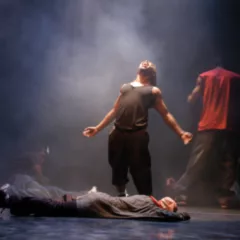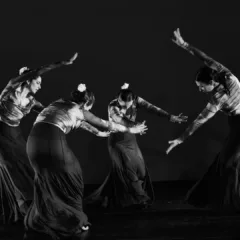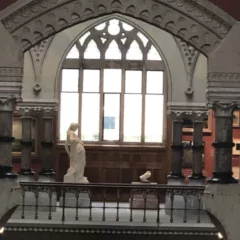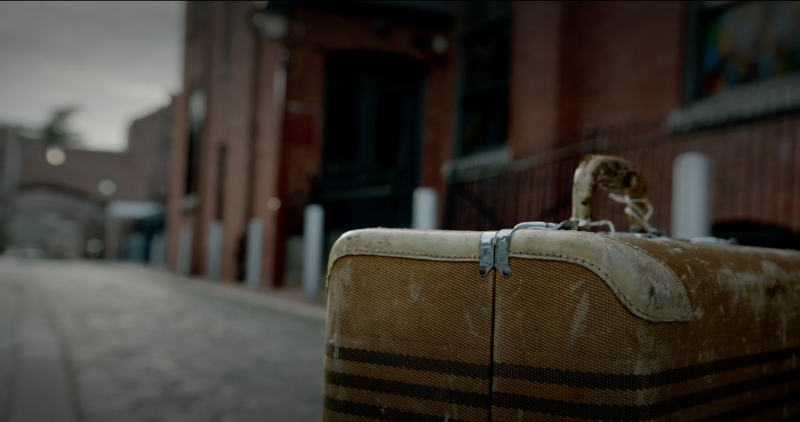
Personal geographies
Opening and closing with the voice of a woman reciting part of Guy Johnson’s novel Standing at the Scratch Line, Julie Dash’s “The Great Migration” paints an impressionistic picture of the large-scale emigration of African Americans from the South to the cities of the North in the first half of the twentieth century. Rather than focus on a single individual’s story, Dash uses a mixture of archival footage and film she shot herself, along with the visual device of a battered suitcase, its travels highlighted by subtle shifts from black and white to color film. The suitcase comes to stand in for all of the people who made this great migration, containing the memories of their struggles and successes as they make a new home.
The absence of people in the footage she captured lets Dash concentrate on the spaces and places of migration, particularly churches. Suggesting the community and continuity that African Americans built between their Southern origins and their new Northern home, she focuses on a pair of AME (African Methodist Episcopal) churches–Mt Zion AME in Charleston, SC, and Mother Bethel in Philadelphia. (Mother Emanuel AME in Charleston also makes a brief appearance). This aspect of the film resonated with me because I grew up in Charleston near the churches she depicts (family friends are still members there), while I lived not far from the historic church of Mother Bethel when I first arrived in Philadelphia. These churches are thus landmarks in my own personal maps of Charleston and Philadelphia, as I imagine they are for many people.
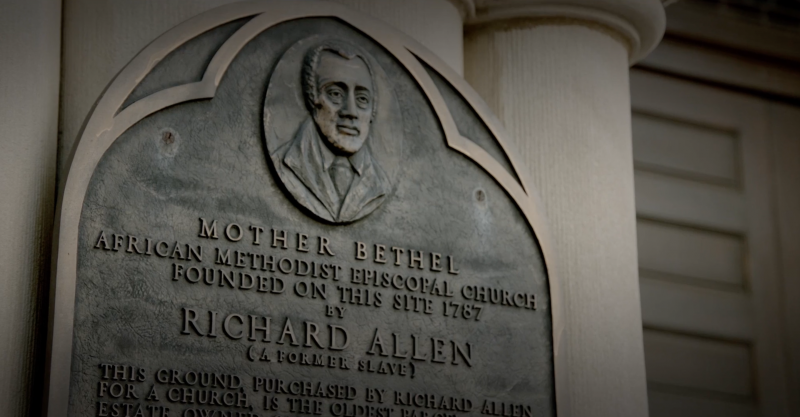
This subtle cinematic tone poem is also a reflection on Dash’s own family story. Born in Queens, her father was from the Sea Islands of Georgia, and shared the Gullah-Geechee language and culture of the South Carolina Lowcountry depicted in the film. As her short (10 minute) but evocative film makes clear, the story of the Great Migration is not only a demographic phenomenon, but also part of many families’ intimate history.
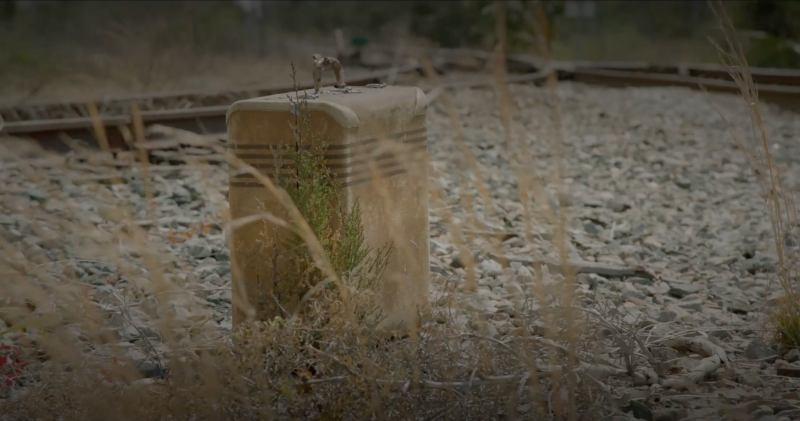
Arduous journeys
Julie Dash’s “The Great Migration” observes the closing of one chapter of history for many African Americans–life in the unforgiving South–and the beginning of another–an arduous journey North towards an uncertain future. The opening scene of the film, a beach at first light shot in soft muted color, is a fitting metaphor for this transition. A solitary suitcase sits on the sand, a totem for countless histories both individual and communal. At this point of departure where land ends and sea begins, the memories of these emigrants bridge all physical borders, and as the sole remaining traveler, the suitcase is our window into a narrative whose roots run deep and whose branches continue to grow.
The film takes a meditative pace as it transitions from archival black and white still images of African American families and their homes, churches, and occasionally plantations to film footage of some of these same locations today. Churches serve as common generational denominators, gathering places and structural vessels of history that stand tall today. I imagine as landmarks of significant periods of many family histories that the African Methodist Episcopal Churches are a point of pride and beacon of strength–portals to the memories of the past and hopes for the future.
The Great Migration is part of a program of shorts being shown as part of BlackStar Film Festival. The screening will take place at on August 6 at 5:30 pm at International House, 3701 Chestnut Street, Philadelphia, PA. This film is part of a larger project entitled The Great Migration: A City Transformed (1916–1930), which involves five media productions (of which Dash’s is one) and the participation of several Philadelphia-area community organizations.



